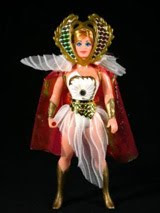
I began this book with a preconceived idea about the Japanese in Korea, based on the book I had just finished reading: Year of Impossible Goodbyes by Sook Nyul Choi (see previous post). I was angry.
The author of this book shows her readers that it was difficult for both groups during this time in history (WWII). I finished this book with yet another new understanding of the conflict. Although the Koreans were controlled by many groups because of the prime location of the country, communist Japanese and the "Korean Anti-Japanese Communist Party" being among those who sought to control Korea and it's people, many of the Japanese in Korea had experienced a considerable amount of ridicule and unfair/violent treatment.
Comparing the books is extremely eerie, in that the two young girls from conflicting national backgrounds, experienced MANY of the same hardships. For instance, both experienced constant travel, running, hiding. The loss of loved ones, death. Hunger, thirst, and fighting for survival. Loneliness, sadness, hopelessness. Even the task of crossing the railroad tracks across the quick moving river was an experience that the two girls shared.
It is interesting to see how the young Yoko transforms in this novel. We see her living comfortably in the beginning with many luxuries, I think "feisty" is a word I have heard her described as, and it works well (that kid on the video in my Child Lit class used that term). She is feisty. In the beginning, her "Honorable brother" tells to be thankful for the carrots that she doesn't like. He says, "You should be grateful that there is food on your plate." Little did she know that she revisit these very words in her own future, and understand what it feels like to have a gnawing in you stomach because you haven't eaten for days and your feet are raw and bloody from travel. And to just wish you could find a raw wild carrot to munch on slowly.
Also in the beginning Yoko sees her "Honorable sister" cast her a discriminatory "spoiled brat" gaze. In the end we see her revisit her past objectively as she thinks about the "spoiled brats" in her new school. Yoko comes to understand what her Honorable sister meant by the gaze, and ultimately came to realize - through devastating and traumatic circumstances - the errors in her previous ways of thinking.
I was angry when I began, but as the characters in the novel transformed, so did I. I became emotionally attached to the sisters. I was so sad when they were "orphaned." I was constantly fearful for their "innocence" and their lives. The author has a real gift in creating a captivating experience for her readers. Although difficult to read, I NEEDED to know if they would be okay in the end.
Experience can inform anyone's preconceived ideas about history, so can good literature written and read in many different viewpoints! Intriguing!


This book is not worth reading because it was made for international political purposes, not for education. Most of the facts are distorted in this book:
ReplyDeleteThere were no North-Korean soldiers in 1945 (they existed after 3 years), and the location of where the author claims to have been when she was young did not have the right condition for bamboo trees to grow back then (Nanam). She also claims to have seen and heard bombs explode due to US air-force planes, but B-29s did not have fuel tanks large enough to fly all the way to Korea (nor were there ANY records of bombing in Korea at that time). Also, the United States ORDERED the Japanese soldiers occupying in Korea to be left ARMED until every Japanese civilians were escorted back to their homeland. Thus if Japanese civilians were REALLY raped, chances are, they were raped by their own people.
So what do we have left from this novel? Just a fictional book that distorts history in a very ironic way (Considering the fact that the Japanese soldiers RAPED and MURDERED Korean women at wartime for pleasure. They actually had the nerves to call these women 'Comfort Girls'). The book title should be renamed as "So Far from History and the Truth"
It's like Hitler claiming that he was tortured by the Jews in the Holocaust. Sounds like a nice book for young kids and adults eh?